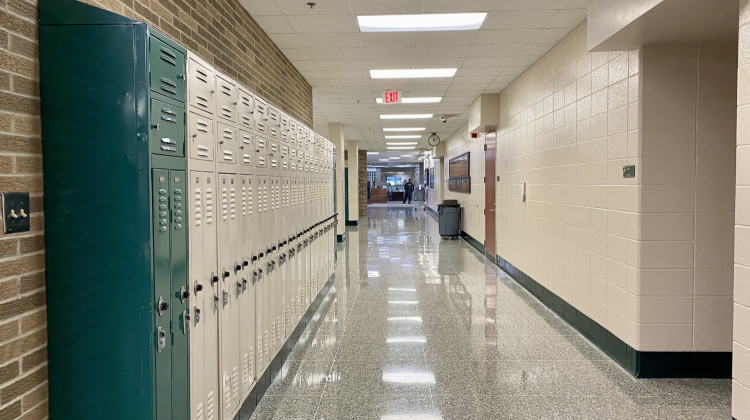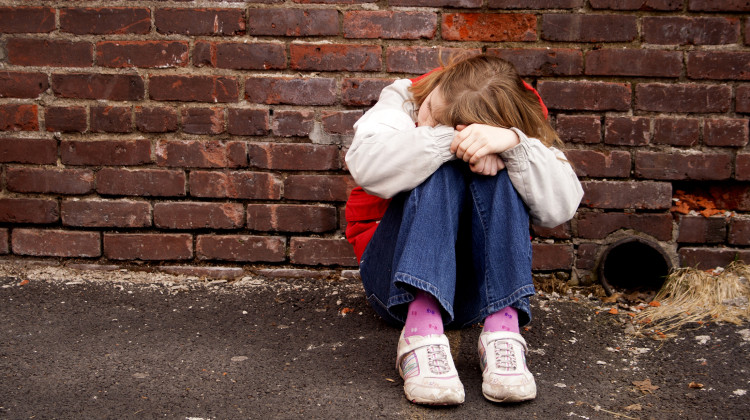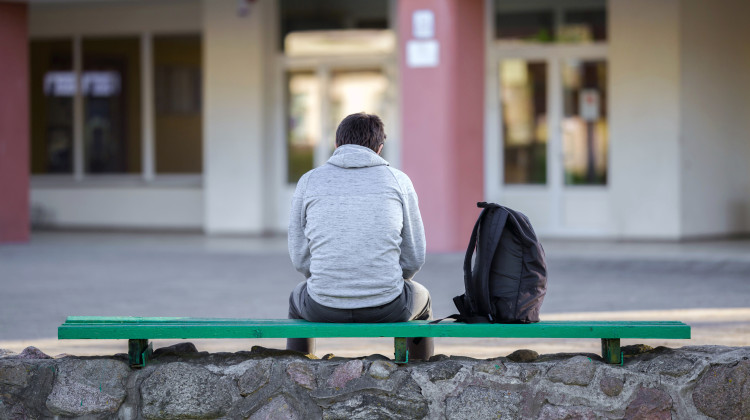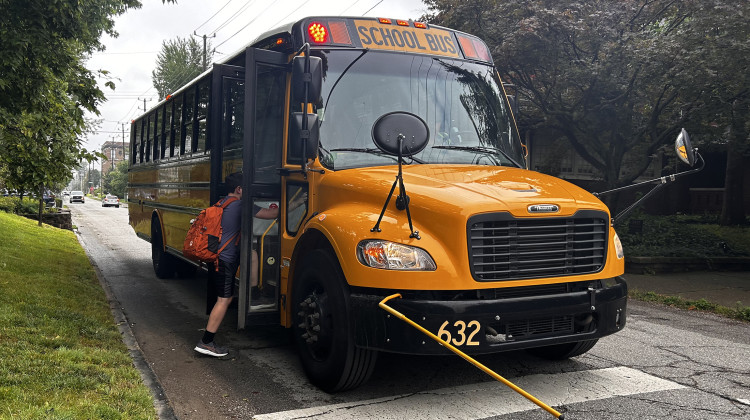In 2023 WFYI's education journalists tackled complex investigations and stories — including the lack of accountability for schools that restrain and forcibly isolate students, school closures in Indianapolis, the mental health crisis facing girls, battle over books in libraries, and how students are taught about drugs.
More than 150 education stories were published or broadcast on WFYI, and some were republished by our state and national partners. Here's a selection of the top education stories of 2023:
Indiana isn’t holding schools accountable for forcibly isolating and restraining students
State lawmakers called for solutions in the wake of a the WFYI investigation series "Uncounted" that revealed Indiana schools restrain and forcibly isolate students thousands of times each year, but some schools do not accurately report the incidents to the state. Reporter Lee V. Gaines found the Indiana Department of Education did not audit schools’ seclusion and restraint data as required by a state rule. Following the series' publication, the DOE conducted audits for the past three school years — and the findings confirmed WFYI’s reporting.
In interviews with parents across the state, Gaines also uncovered schools are not always following their own seclusion and restraint policies. Students in several schools and programs that exclusively serve students with disabilities are frequently secluded and restrained, and those incidents are hidden from public view.
We’ll watch if proposed legislation in the 2024 legislative session could address these issues.
Schools failing disabled students

Reporters Gaines and Dylan Peers McCoy spent more than a year following the lives of families and investigating school and legal systems to show how parents are forced to take drastic actions just to get a public education for their children with disabilities.
McCoy’s story focuses on Christian — one of 1,400 students in Indiana who attend a segregated school that only serves students with disabilities. Christian’s parents have fought for more than a decade to get him a good education — from searching for alternative programs to running for public office. But they keep going back to a school they say fails Christian.
Gaines’ investigation found that while federal law mandates public schools provide an appropriate education to students with disabilities, it’s often up to parents to fight for their rights. The story uncovers the little-known world of legal battles between parents and school districts over how to educate and offer services to children.
The loophole in Indiana’s high school graduation rules
To earn their diplomas, Indiana high schoolers have to prove they’re prepared for life after graduation. A military enlistment exam called the ASVAB Career Exploration Program has quietly become one of the most popular options. WFYI obtained state data that showed nearly 20 percent of all graduates relied on the test in 2021. At the same time, only a tiny fraction of students who take the test intend to enlist in the military. Lawmakers were concerned because the exam does not help students enroll in college or get jobs outside the military. So they passed a law that requires students who use the ASVAB as a graduation qualifier to declare intent to enlist in the military.
Indiana high schoolers feel hopeless. So why is mental health care controversial?

Last year in Indiana, nearly half of middle and high school girls experienced depression, and close to one in four girls considered suicide. Yet despite the growing need for mental health support, schools are facing an onslaught of criticism from conservative parent activists. Reporter McCoy examined these issues through a series of stories: why is mental health in school so controversial?; when a queer teen used an encounter with First Lady Jill Biden to discuss mental health; and how a new organization wants to address this crisis.
Will teaching reading science pull Indiana children out of a literacy decline?
Indiana is facing a literacy decline. Multiple state and national tests report young students struggle to learn strong vocabulary and phonics — the building blocks of reading. Now, state leaders are trying to overhaul education to use scientific research on how people learn to read to inform how schools teach children. However, some Indiana colleges don’t include it in the reading curriculum for teacher prep programs.
Reporter Elizabeth Gabriel spent time at a school already using the methods to see how it could pull children out of the literacy decline. We also spoke with the journalist and podcast host who kick-started the national conversation on how kids learn to read and explained how the city is spending federal funds to bring reading tutors to 10 locations.
'Just say no' didn't actually protect students from drugs. Here's what could
For years, programs like D.A.R.E. told students to "just say no" to drugs. But research shows that approach alone didn't work. Reporter Lee V. Gaines collaborated with NPR’s education desk to investigate how this traditional approach failed to prepare some students for an increasingly dangerous drug landscape in which a single high can have deadly consequences. Gaines also discussed the topic on NPR's Life Kit podcast.
How are Marion County students earning college credit in high school?

More than a decade ago, only a quarter of Marion County public high school graduates earned college credit. Today, over half of all graduates earn dual credits from Indiana public colleges during their high school years. Reporter Sydney Dauphinais looked into the growing popularity of dual-credit programs, as the price tag of a secondary degree is questioned by debt-averse students and Indiana’s college-going rate is stuck at the lowest point in a generation.
Databases
There’s an abundance of public data that helps journalists and the public understand how schools operate, whether students are meeting academic benchmarks, and if schools are held accountable for policies. In 2023, WFYI began publishing searchable databases for reading proficiency, students secluded and restrained, how much money private schools get in Indiana's voucher program, and more. We plan to publish many more in early 2024. To stay up to date, bookmark this link: wfyi.org/news/tags/database.
Eric Weddle is the education editor at WFYI. Contact Eric at eweddle@wfyi.org.
 DONATE
DONATE







 Support WFYI. We can't do it without you.
Support WFYI. We can't do it without you.